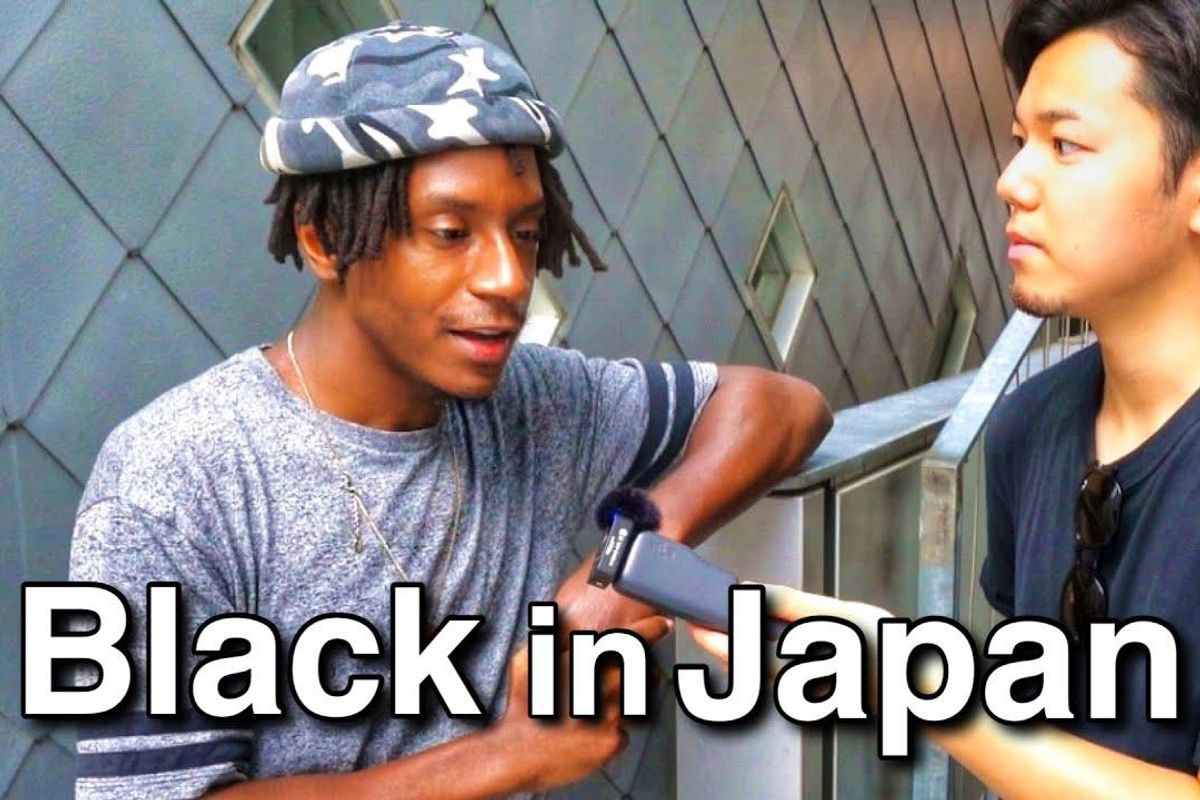College student in Tokyo asks strangers, 'What's it like being Black in Japan?'
Japan is one of the world’s most racially homogeneous countries.

TAKASHii is a young college student in Tokyo who travels around the city having chats with random strangers he meets. His YouTube channel is filled with all sorts of candid, man-on-the-street type interviews, usually focused on one social topic question, usually beginning with “What’s it like…?"
The amateur journalist recently asked, “What’s it like being Black in Japan?” to people originally from America, Africa and Jamaica currently living there.
Japan is one of the world’s most racially homogeneous countries. As racism continues to be a huge issue in more diverse nations, how would being an even smaller minority affect quality of life?“When I first came here, I felt like a spectacle,” answered the first woman, an African American who had lived in Japan for six years teaching academic English. Though she noted, “it just feels like I would living anywhere else…people are just gonna look because they have this notion of Black people.”
TAKASHii then asked the young woman her opinion on young teenagers wearing dreadlocks in their hair. “Some people say ‘it’s appropriation’ and other people say ‘it's appreciation’. I personally don’t like it but I can’t make anybody do anything,” she replied.
As another African American, in Japan since 2016, put it: “In America they like Black people as a culture, not as a people. It’s kind of the same here.”
However, two women from Kenya shared a different view.
“In my opinion Japanese are very welcoming. And even the stares you get, it’s not malicious. People are just curious. And people are friendly. There are so many cases where I’ve been helped by Japanese strangers,” one noted.
She did add that Japanese people tended to “relate more” to Black Americans from consuming their music and movies, whereas the first thing that comes to mind when meeting a Black African is “the national parks and animals.”
The last interviewee, a man from Jamaica, came to Japan to escape his home and expand his world view.
“A lot of the time I forget what color I am,” he quipped, saying that “Japanese people are not outwardly racist, thank god.”
He also joked that some of the major “positive stereotypes” usually associated with Black people tended to work out in his favor. “They think I can play basketball, that I’m a good singer, or that I have these super star qualities.
“The more you interact with Japanese people and you enter their social circle, the more they treat you like one of them,” he added.
Our world is opening up in many ways. Perhaps by having more conversations like these, we can learn how to better build a more accepting society.
You can find even more of TAKASHii’s interviews here.- Korean war veteran reunites with Japanese love - Upworthy ›
- Penguins won't eat the cheap fish at Japanese aquarium - Upworthy ›
- At Japan's anti-procrastination cafe, writers can enjoy tea—and ... ›
- A guy's totally random text in the 1990s ended in marriage - Upworthy ›
- Japan's 'rice paddy art' blends modern technology and ancient crops to make living artwork - Upworthy ›



 Millennial mom struggles to organize her son's room.Image via Canva/fotostorm
Millennial mom struggles to organize her son's room.Image via Canva/fotostorm Boomer grandparents have a video call with grandkids.Image via Canva/Tima Miroshnichenko
Boomer grandparents have a video call with grandkids.Image via Canva/Tima Miroshnichenko

 Worried mother and children during the Great Depression era. Photo by Dorthea Lange via Library of Congress
Worried mother and children during the Great Depression era. Photo by Dorthea Lange via Library of Congress  A mother reflects with her children during the Great Depression. Photo by Dorthea Lange via Library of Congress
A mother reflects with her children during the Great Depression. Photo by Dorthea Lange via Library of Congress  Families on the move suffered enormous hardships during The Great Depression.Photo by Dorthea Lange via Library of Congress
Families on the move suffered enormous hardships during The Great Depression.Photo by Dorthea Lange via Library of Congress
 kenan and kel nicksplat GIF
kenan and kel nicksplat GIF  season 6 GIF
season 6 GIF 
 Vintage portraits of a woman and two children, showcasing elegant attire of their era.
Vintage portraits of a woman and two children, showcasing elegant attire of their era. Three friends enjoy a lively music session indoors.
Three friends enjoy a lively music session indoors.